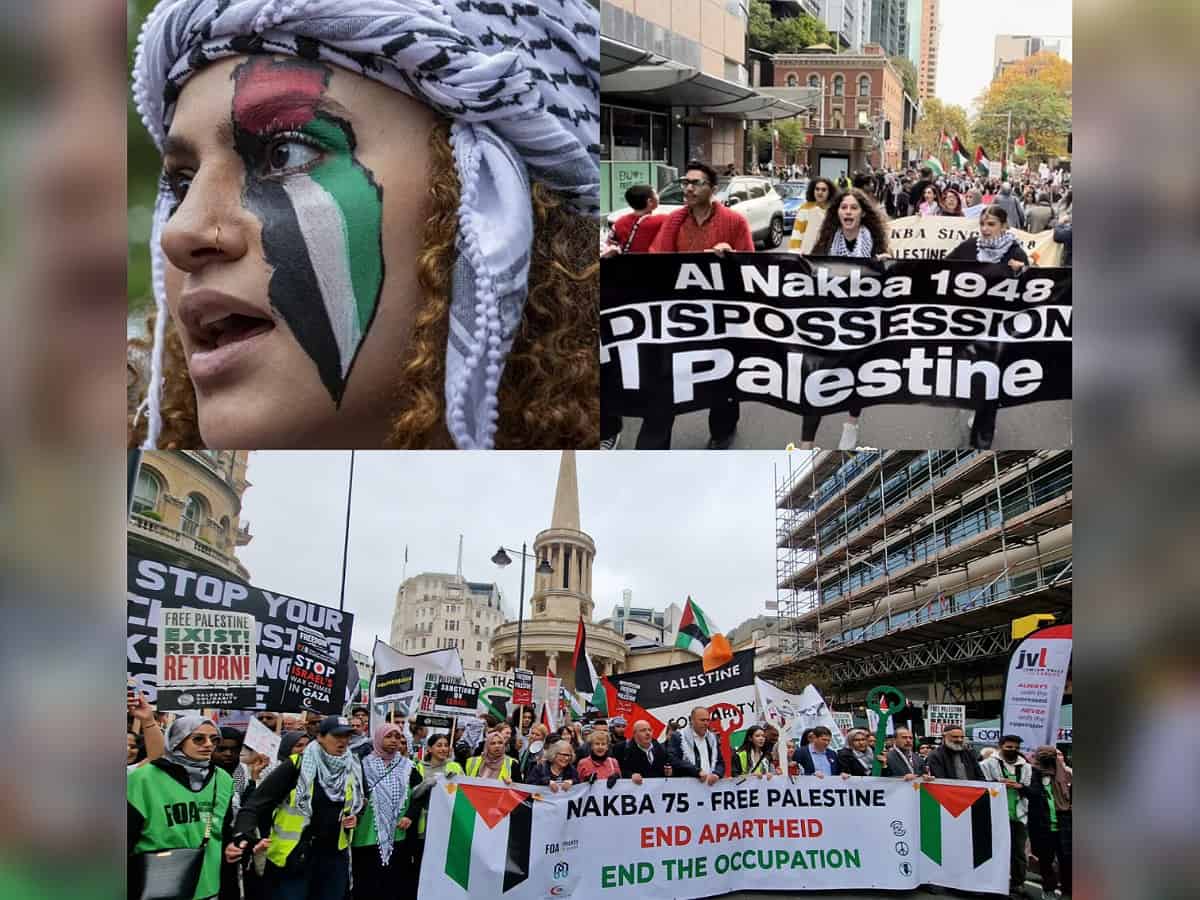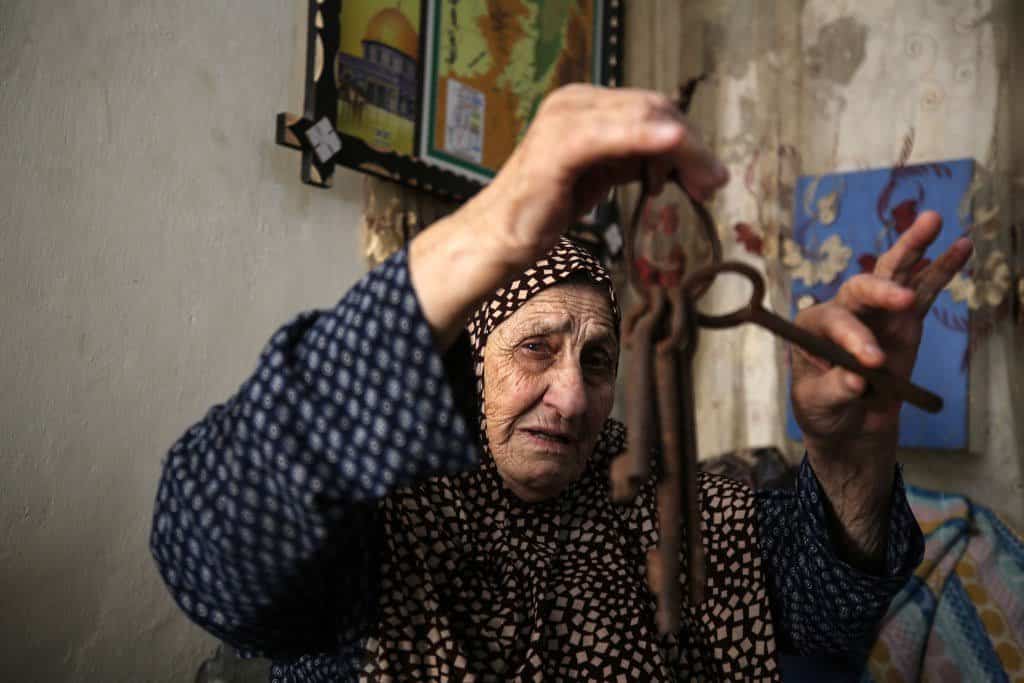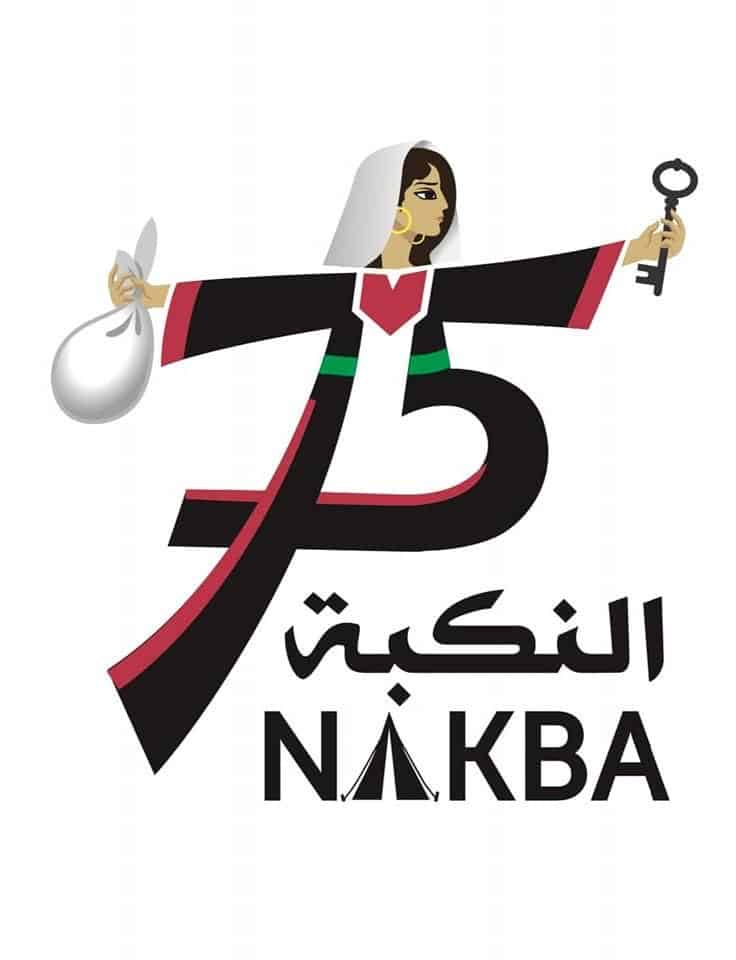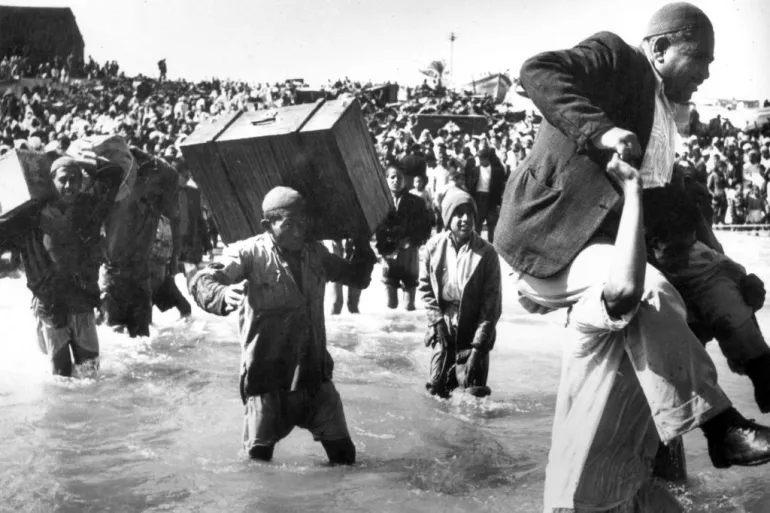
Every year, on May 15, Palestinians mark the anniversary of the ‘Nakba’, which permanently displaced nearly 800,000 Palestinians from their homes and land in Palestine in 1948 during the establishment of Israel.
The United Nations (UN) for the first time marked the 75th anniversary of the tragic event on Monday to “serve as a reminder of the historic injustice suffered by the Palestinian people” and bring to light the ongoing refugee crisis.
After tensions that lasted for five days (May 9-13) between the Israelis and the Palestinians in the light of the atmosphere of escalation hanging over the besieged Gaza Strip, Palestinians on Sunday and Monday commemorate the 75th anniversary of the Nakba.
The Palestinians in the diaspora camps, as well as in Jerusalem, West Bank and the Gaza Strip, organise mass rallies, raising flags bearing the names of the cities and villages left by their ancestors, the flags of Palestine, black flags, and others bearing the “key to return” painted on them.

A march has been organized in the city of Ramallah in the West Bank. A siren is sounded for 75 seconds, which is the number of years that have passed since the Nakba.
London, Vienna, Irish, Dublin, Manchester, New York, France and Canada among others witnessed mass demonstrations and events during which Palestinian flags and slogans were raised emphasizing adherence to the Palestinian territories.

Thousands of people around the world, both young and old, proudly wore keffiyehs (The Palestinian keffiyeh is a chequered black and white scarf) draped around their shoulders, wrapped around their heads, and tied around their necks.
Slogans of “Free, Free Palestine” and “From the river to the sea, Palestine will be free” were raised.
This is the first time that the United Nation has decided to revive this occasion by organizing an official event at the headquarters of the international body in New York, where Palestinian President Mahmoud Abbas delivered a speech and presented the Palestinian version of Nakba.
Palestine
Tel Aviv
London
“The Nakba is my family’s story. Nakba was not just a singular event, today we are still living the effect of the Nakba.” British Palestinian activist Leanne Mohamad told Middle East Eye.
Sydney
Dublin
Melbourne
Brighton
Capetown
Canada
France
Brooklyn
Yorkshire
Ireland
Australia
What caused Nakba?
On May 14, 1948, immediately after the end of the British Mandate, the Zionist forces declared the establishment of the state of Israel, which led to the outbreak of the first Arab-Israeli war.
Nakba stems from the Arab-Israeli war which began on May 15, 1948.
Nearly 800,000 Palestinians who lived in the area which became Israel fled or were expelled by Israeli forces in the 1948-49 war.
They sought refuge in several neighbouring countries and constituted at that time about half of the Palestinian people. The number has now reached about 7 million refugees, most of whom live in diaspora camps in the Jordan, Gaza Strip, West Bank, Syria, Lebanon and East Jerusalem.
The events also include dozens of massacres, atrocities and looting against the Palestinians. More than 500 villages were demolished and the main Palestinian cities were destroyed and turned into Jewish cities.

Israel celebrates the day as the day of ‘independence’.
The Palestinians revived their national tragedy of decades of losing their homeland in an unofficial manner, but in 1998, the former President of the Palestinian Authority, Yasser Arafat, declared May 15 as a national day to commemorate the fiftieth anniversary of the Nakba.
The right to return is a major demand of the Palestinians and their leaders. They base their demands on a resolution of the General Assembly of the United Nations, which was adopted in 1948.
The resolution says “Refugees wishing to return to their homes and live at peace with their neighbours should be permitted to do so at the earliest practicable date”.
Israel says it cannot allow them to return because that would overwhelm the country of 8.5 million and end its existence as a Jewish state.



